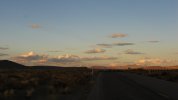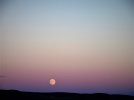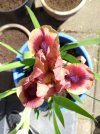Personally, I find that editing almost always makes the images worse. If anything, it's a very subtle art of slightly balancing things, but even then, if I use my good camera with a decent lens, I almost always prefer the original shot.
I agree with Luc, I think it may also stem, in some instances from the perfection program, it's easy to get lost in it isn't good enough, I need to edit it more etc etc by just doing it, it helps to overcome it IMO.
So you are SOOC (Straight out of camera) guys?

I think if you get a good process and learn the hotkeys, you can spend maybe 5 minutes on a photo you want to edit. When I take a dramatic sky photo on my phone, it's never how it looks in real life. So I like to edit those. And I prefer movement/flow, boldness, high contrast and warm tones, so I want to enhance those a bit too. Cropping is a quick way to enhance a composition, if you have the megapixels to spare.
Also, keep in mind that "researching stuff" can be highly addictive and draining. You don't get better at anything that way - actually doing it, practicing it, and developing your taste and the soul of your work is where it's at, IMO.
Yeah, getting the image right on the first try makes it so you don't need to edit. Some try to just one lens with basic settings so that the focus can just be on getting good images that capture the emotion of the moment. I want to try that minimalist approach.
This might apply to professionals who shoot for extended periods of time, but EVFs (Electronic View Finders) can affect your eyesight. Makes sense, as you're looking at a blue emitting screen at around an inch's distance. That dissuades me, as I don't want another thing to mess up my eyesight. If I had one, I'd at least turn down the brightness, maybe even switch between eyes I use it with. But I hear that there are hybrid viewfinders, where you can turn off the display and use it as a standard optical viewfinder. Here's a video on one professional's experience:
https://www.youtube.com/watch?v=50Fx6LlNarw
I talked to a friend at work about getting a camera. He has a full frame with various lenses. I was surprised that he was actually very into it, and wants to do photography when he retires.
I've settled on a lens. I want to do macro and have an all-around lens, so
this 40mm F2.8 one fits the bill. I was surprised to find this "perfect" for me lens. And glad to have found it, but I'm stuck between the body, D3400 or D5500. I guess the question is do I really need a touch screen (for pinch zooming in on images) and a swivel screen (for taking low to the ground pics).
I've only used my short pendulum a few times recently, and tried to get some info on which camera body I should get. I even wrote down the models on pieces of paper, along with blank pieces, and got inconclusive results. I concluded that it doesn't matter what is best, I asked the wrong question, and should network about it. The original purpose was to capture what's inspiring and possibly for art reference, and both cameras would do that just fine.
I also considered not getting a camera, finally. Because photography is already in my life to a small extent, with my phone always with me. This was just an upgrade to a serious device, the phone being the portable always on me device.
I usually "pixel peep" on my phone by zooming in, at least to check the focus. The consensus seems like this is a bad habit, because even slightly out of focus pictures can be keepers, and this brings you out of a creative flow and toward perfectionism. This wedding photographer shows how creativity can be had with what you might not think are "good" photos, sort of breaking the rules:
And this is a really good one showing how you lose opportunities when limiting ISO (noise can be good):





 I think if you get a good process and learn the hotkeys, you can spend maybe 5 minutes on a photo you want to edit. When I take a dramatic sky photo on my phone, it's never how it looks in real life. So I like to edit those. And I prefer movement/flow, boldness, high contrast and warm tones, so I want to enhance those a bit too. Cropping is a quick way to enhance a composition, if you have the megapixels to spare.
I think if you get a good process and learn the hotkeys, you can spend maybe 5 minutes on a photo you want to edit. When I take a dramatic sky photo on my phone, it's never how it looks in real life. So I like to edit those. And I prefer movement/flow, boldness, high contrast and warm tones, so I want to enhance those a bit too. Cropping is a quick way to enhance a composition, if you have the megapixels to spare.



